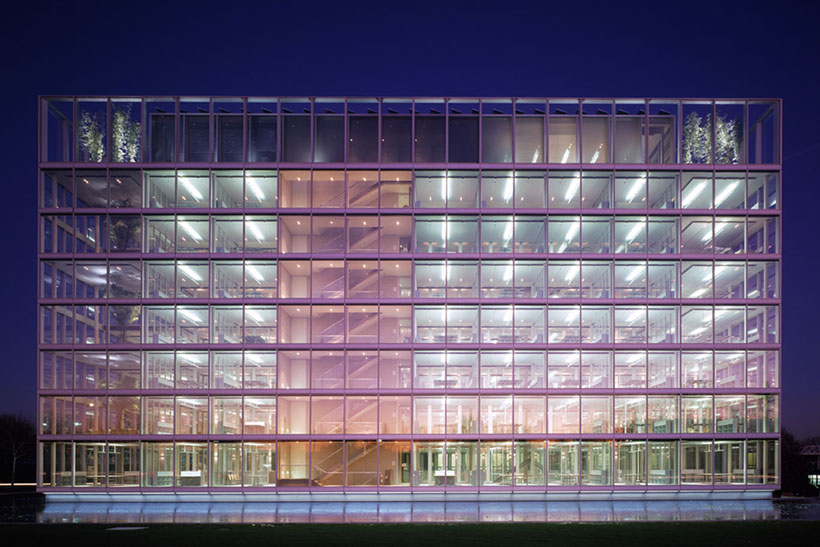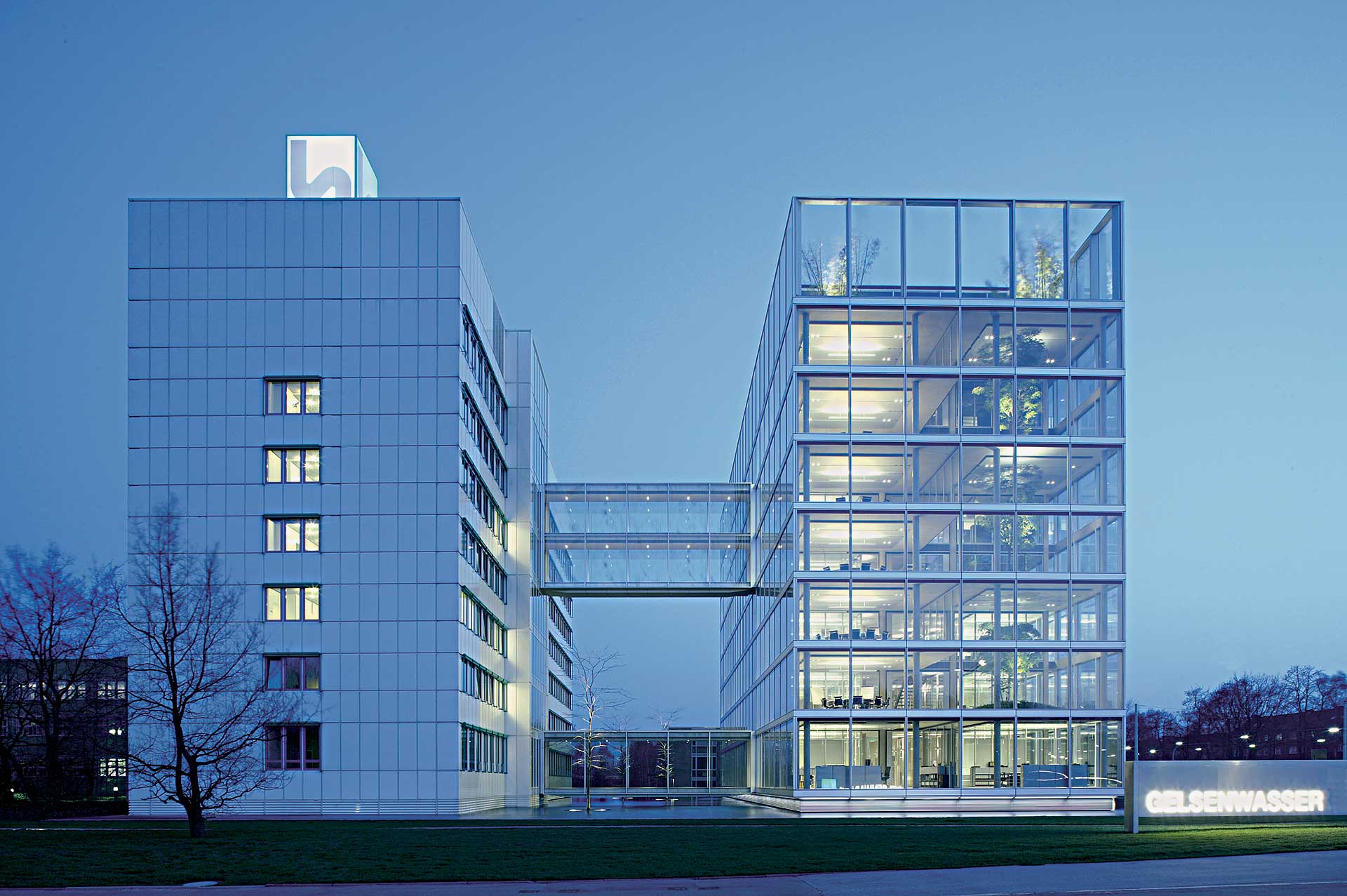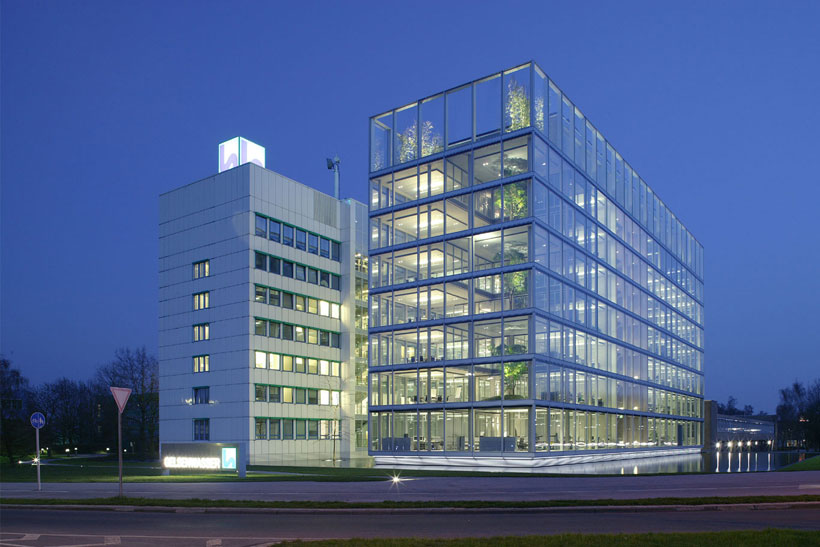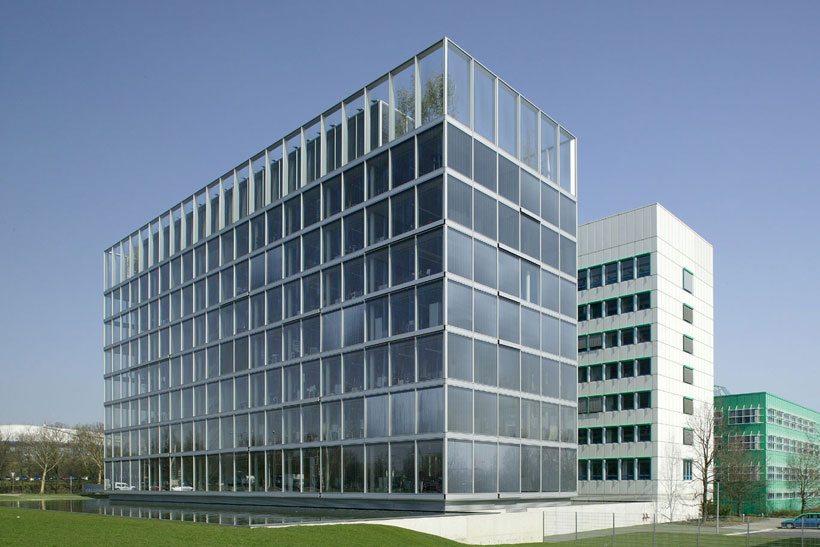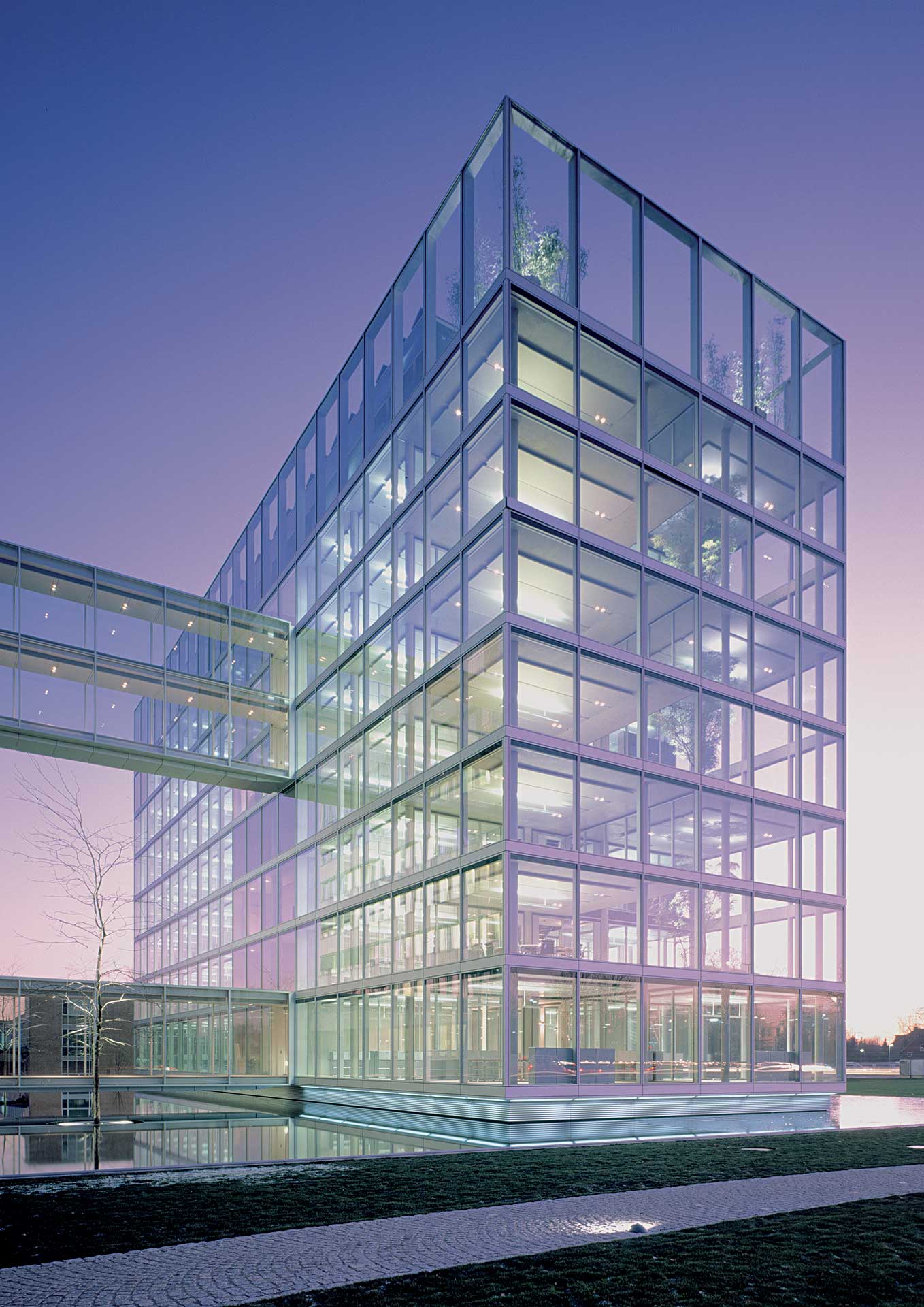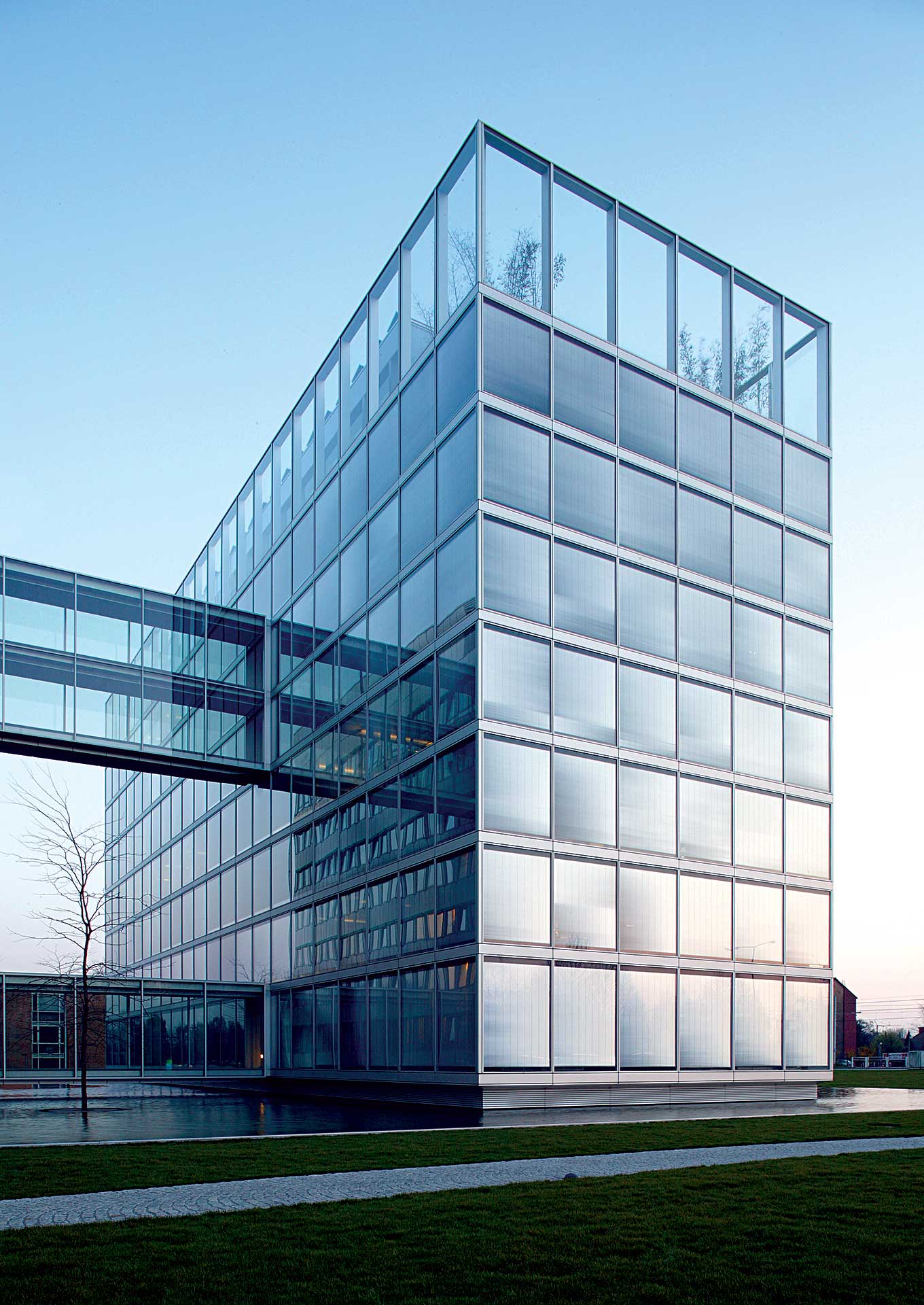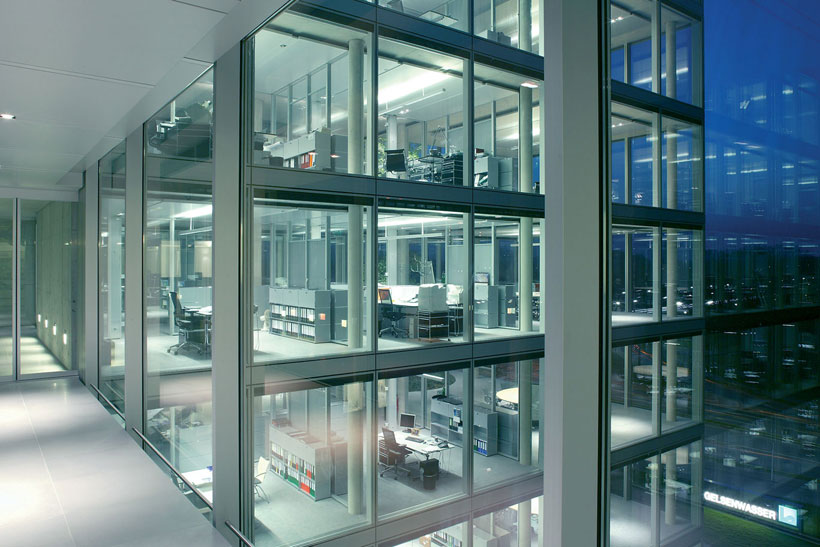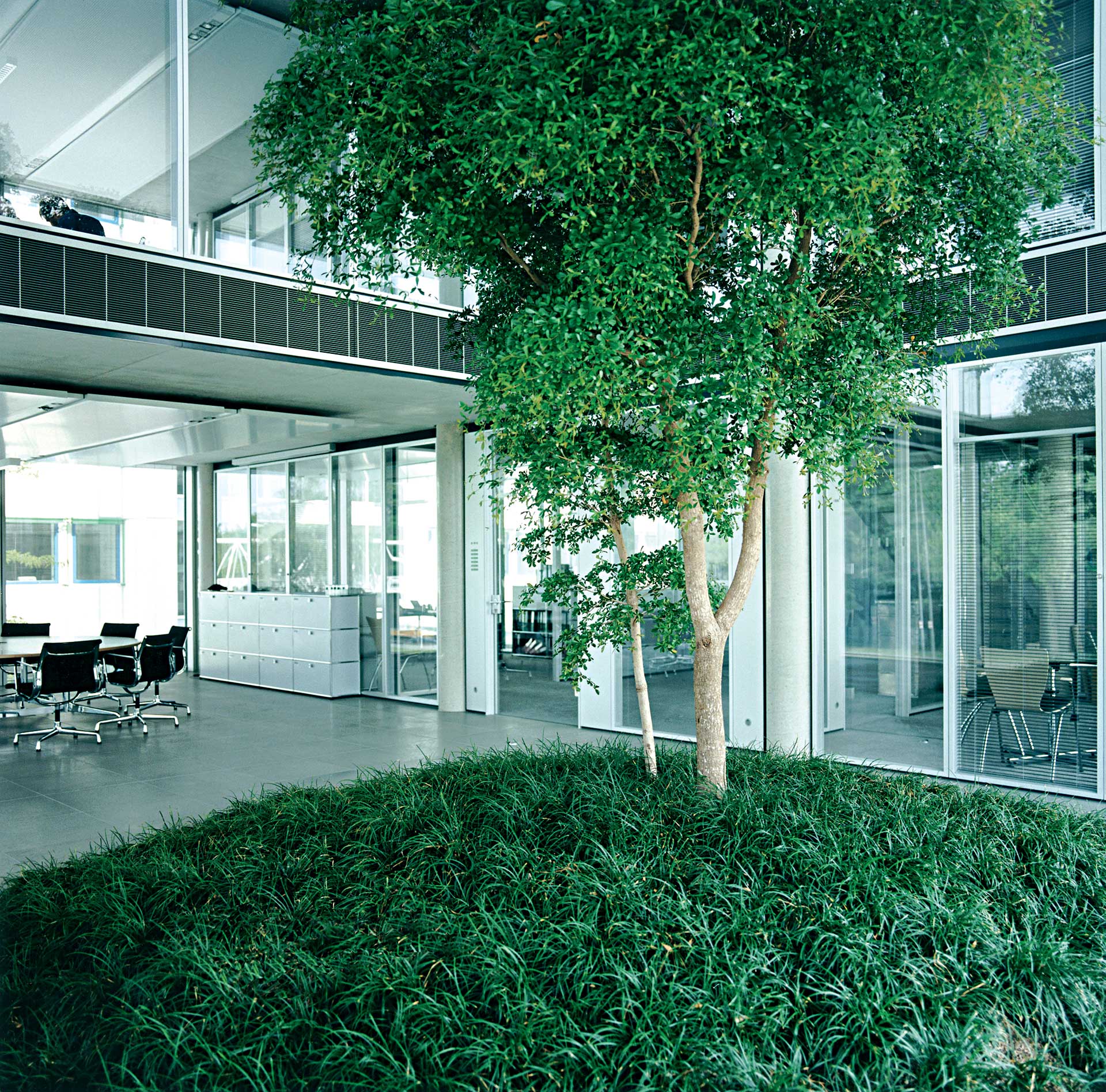As international service company for water and power industries, the society GELSENWASSER AG is present with a great number of branches and involvements all over Germany as well as in neighboring European countries.
The new building of GELSENWASSER AG is located next to a crossing of two important federal roads close to the sports arena of the footbal club FC Schalke 04. Every day, thousands of people pass by this exposed position. In order to give an own identity to the new head office while respectfully complementing the existing building, the doubling of a building envelope shows important advantages for realization of the design idea. The simple and distinct cube does not enter into competition with the existing buildings. The parallelism of the building envelopes leads to useful synergies with regard to energy balance as well as thermal and acoustic comfort.
The new building emphasizes the company’s open-minded and communicative structure. Flexible space allocation on the different floors and open stairs integrated in the work zone encourage the employees to communicate. A simple and quick modification of departments is possible, thus allowing specific reaction to future user requirements.
The aluminum façade elements with story-high insulating window White Glass (almost iron oxide-free) achieve extraordinary transparency and lead to high solar gains between seasons. Blinds are installed in the space between the insulating panes – this for the first time in such dimensions. A patent application for the special features of this development has been filed in the European Patent Office. The blinds can be used to direct the light and therefore, help to considerably reduce inside burdens (illumination). They are centrally controlled by means of a solar altitude / shade program, tracked during the day, and remain effective even in spite of higher wind velocities.
In the border area of highest possible building transparency it is important to distinguish between “Necessary” and “Reducible”. A re-interpretation of natural window ventilation was an essential approach to this aim. Conventional window ventilation is unsuitable for higher buildings because these are susceptible to wind. Façade designs such as double-skin façades provide approaches to this; however, they include other problems (costs, lost of transparency, heating up of the façade clearance, etc.).
Another aspect is a large-scale integration of windows into a modern building automation concept that indeed is imperative for a wise integration into the building’s energy concept (e.g. building cools down during the night). For these reasons, the “classic” use of windows seems to be outdated, but the user’s interest in a true contact with the outside world will continue to be important for future projects. The important detail of this façade cut down to the necessary (metal frame and glass) is the “aluminum gill” integrated in the ceiling edge. This new interpretation of window ventilation provides a simple and unspectacular solution for the afore mentioned difficulties and – in addition to functional improvements – provides highest-possible transparency of the building.
With a regenerative share of 63 % of the total energy consumption, the new building of GELSENWASSER AG is exemplary in Europe.


